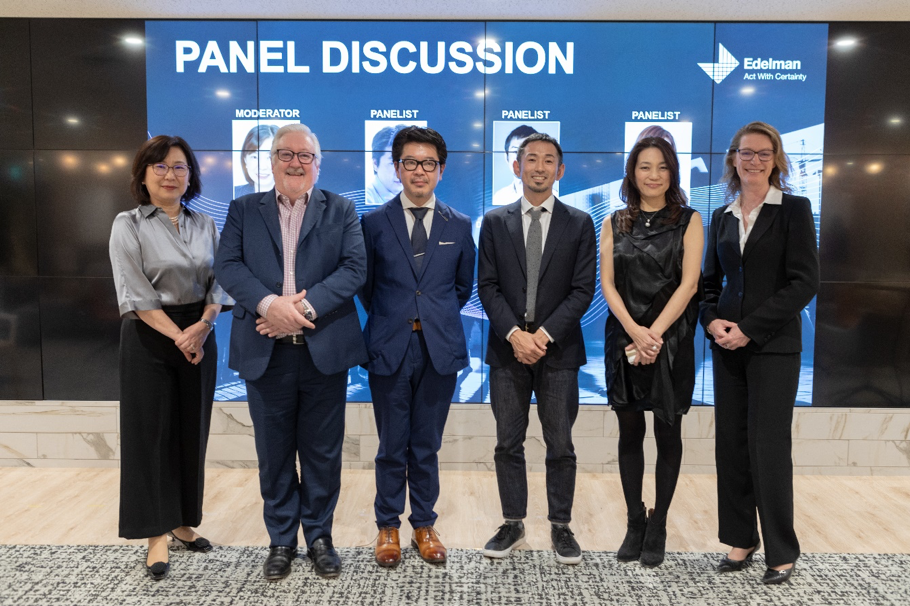I recently traveled to Tokyo to participate in the 2019 Edelman Trust Barometer Japan launch event. Japan is a culture and society that operates by building consensus and collaboration—that is clear to anyone who has ever been amazed, as I was, by how efficiently a city as vast as Tokyo can run.
Like many parts of the world, Japan is also having to navigate changes: technological changes, societal changes, and even changes at work. But trust in Japan is unequally divided among different groups, making it more difficult for the country to build consensus and unify around a way forward.
Japanese trust is divided in a number of ways.
- Divided by class: At 16 points, Japan has one of the largest trust gaps between the informed public and the mass population. Only six of the 27 markets we survey have more extreme trust inequality.
- Divided by gender: Overall, Japanese men are 10 points more trusting than Japanese women. For trust in NGOs, government and the media, Japan’s gender gap is among the top three largest gender gaps we measured.
- Divided by culture: Not surprisingly, our panelists had a great deal to say about both demographics, and how changing social norms were also creating cultural divides.
- Divided by national identity: While Japan is one of the least-trusting nations in the world, Japanese companies are among the most trusted outside Japan. And Japanese employees have different expectations for their employers than employees from other parts of the world, creating challenges for large multinationals who must work with different stakeholders.
How can Japan navigate change and build consensus around a path forward? Our research points to the employer relationship as one source of trust, certainty and vision for the future. But the lively panel discussion also pointed to some other avenues.
One big conversation topic was the media. Once used to create a shared experience, the media today has become a tool for dividing us, observed Toru Yoshida, a professor at Hokkaido University Graduate School of Law. Motoko Imada, CEO of Infobahn and a successful media entrepreneur, offered a way forward: rather than thinking like mass media, where experts and journalists took a top-down approach to telling us what we should know and think, successful media and content platforms today must start with the readers and their interests and build up from there. Only this way can the media and other content creators create engaged and informed communities.
World champion sprinter Dai Tamesue pointed out that shared emotional experiences, such as those created through sports or cultural events, can create a bond that transcends political, cultural and social divides, allowing for consensus and resilience to develop and grow.
And Ms. Imada challenged concerns relating to Japan’s demographic changes, arguing that an aging population does not necessarily present a problem when people are staying healthy and living longer, saying that grandparents are an underleveraged asset. “Why not encourage your grandmother to launch a startup?” she suggested. Given that she plans to live to at least 120, I look forward to seeing Ms. Imada found a few more companies herself!
Tonia Ries is global executive director, Intellectual Property.





